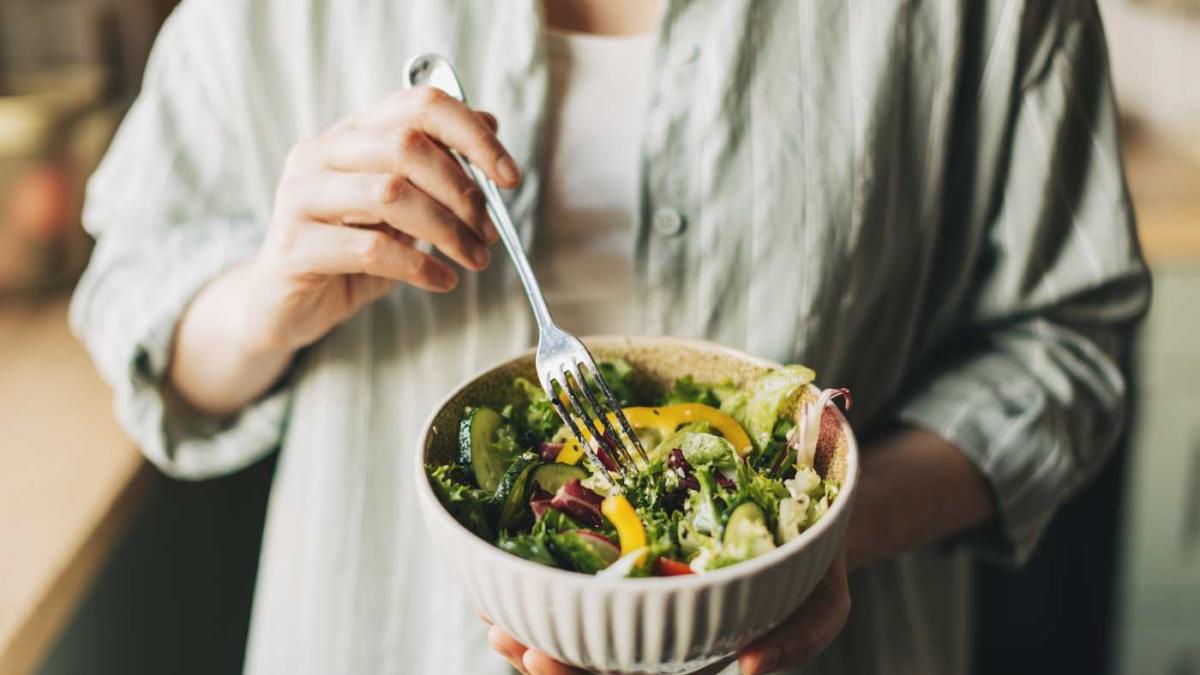attention to the “cocktail” of Mercadona and Floretta

In the middle of summer, salads are an ideal option for both lunch and dinner.. They are light, healthy and, most importantly: fresh. If you are lazy because of the heat, the most convenient and practical way to prepare them is to buy them in ready-made bags and cut them into pieces. You just need to open the package, serve on a plate, season and taste.
However, to keep the vegetables in good condition, free of insects and damaged leaves, Growers must apply certain chemicals, such as fungicides and insecticides, to vegetables.
The non-governmental organization Food Justice has disseminated the results of a macro-research conducted by a French consumer magazine. 60 million consumerswhich indicates that Most bagged salads contain pesticide residues, both commercial and private label.
In the absence of a similar large-scale study in Spain, Justicia Alimentaria analyzed two bags from the country’s most famous brands, detection of residues of four different pesticides in one and two in the other.
The Affairs of Mercadna and Floretta
Specific, Justicia Alimentaria has chosen the Florette brand’s bagged salad called “Mezclum” and the Hacendado bagged salad “Primavera” (Mercadona white label). and sent them for analysis to the Eurofins scientific laboratories in Sant Boi de Llobregat (Barcelona).
“From Food Justice we can report that 6 pesticides were detected: 5 fungicides and 1 insecticide,” we read in the NGO’s statement. “By the way, two of them are on the list of pesticide candidates for replacement: Metalaxyl and metalaxylium-M and Fludioxonil. Candidates for pesticide replacement are substances that, due to their toxicity, should be withdrawn from the market as soon as alternatives with less risk are available.”
The organization says the quantities found in the bags analyzed are within legal limits. Therefore, nothing can be demanded from brands.
However, Food Justice warns that problems and real toxicity could arise as a result of the combination of these substances in the body (the so-called cocktail effect)as well as for its long-term accumulation.
Experts analyze NGO’s report
The NGO’s notice may seem alarmist, because there does not appear to be scientific evidence to support that the cocktail effect and long-term consumption of these toxic products can be harmful to health (in many cases, carcinogenic). However, in its full report, the organization supports these claims with references to various literature and scientific data.
To add an outside source to the NGO, private Catalan radio station RAC1 contacted Martí Nadal, one of the researchers at Tecnatox, Centre for Environmental Food Technology and Toxicology at the Rovira i Virgili University.
“What they comment on in their documents and publications on social networks has all the scientific basis in the world,” confirms Nadal. “The problem is not the individual effects of each of these substances, but all of them together (the cocktail effect). and long-term accumulation, especially of carcinogenic substances, no matter how small the dose.
The expert explains that legislation sets maximum residue levels (MRLs) that may remain in food products, individually for each of these pesticides. “You control them individually, but you don’t know what effect they can have together, not just in combination, but in combination,” details. “It is possible that the simultaneous action of these two substances multiplies their effect.”
What can be done in this case?
So what can we, consumers, do? Wash everything without exception, Even if it’s a bagged salad, and even if the package says it’s already clean and ready to eat. Marty Nadal recommends washing vegetables and other fresh produce, pesticides remain on the surface, and thorough washing ensures that a significant portion of pesticides that may still remain are removed.
In any case, the expert says, there is a big difference in pesticide content between organic fruits and vegetables and those that are not. “When we buy unpackaged vegetables, in addition to reducing our plastic consumption, we force ourselves to wash them,” – Nadal concludes, adding that the presence of insects should not be repulsive, as it is a sign that pesticides have not been used.
